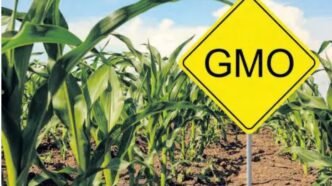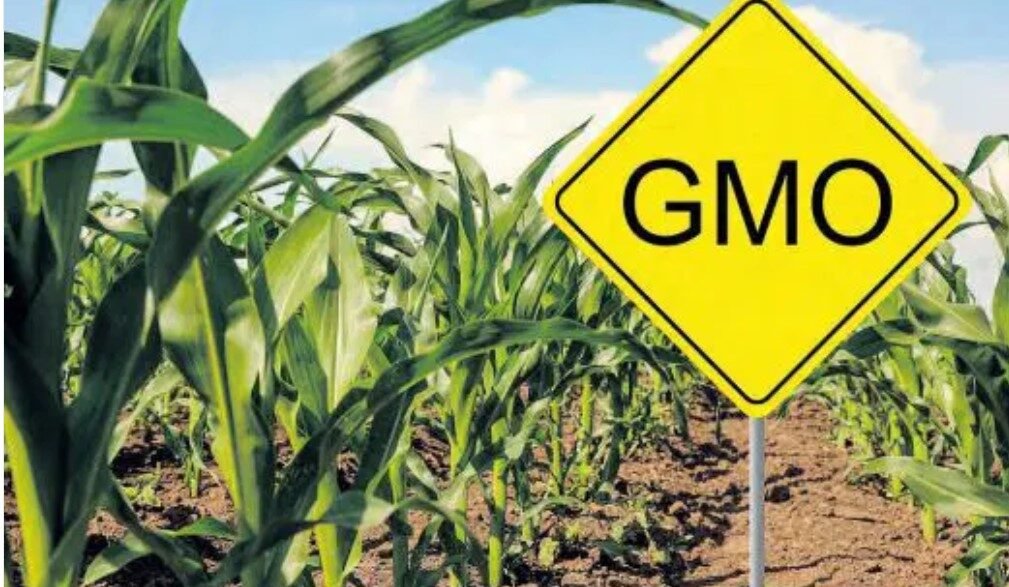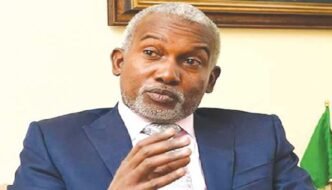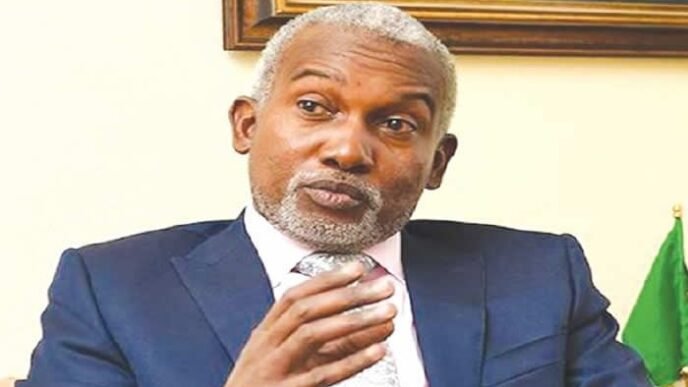Abuja, Nigeria — October 10, 2025:
The Federal Government has called on Nigerian scientists, researchers, and experts in biotechnology to provide clear, factual, and transparent information about genetically modified organisms (GMOs) to the public. The move aims to dispel widespread misinformation and promote evidence-based understanding of modern agricultural biotechnology in the country.
The Minister of Innovation, Science, and Technology, Chief Uche Geoffrey Nnaji, made the call during a stakeholders’ forum on biosafety and biotechnology held in Abuja on Thursday. Represented by the Permanent Secretary of the ministry, Dr. Esuabana Nko-Asanye, the minister said it was time for scientists to lead the national conversation on GMOs with facts, clarity, and professionalism rather than leaving it to speculation or misinformation.
“We encourage Nigerian scientists to take ownership of the biotechnology dialogue in this country by providing factual, evidence-based, and easily understandable feedback to the public,” Nnaji said.
“Our people deserve to know the truth — that biotechnology, when properly regulated and applied, can be a safe and effective tool for national development, especially in agriculture, health, and the environment.”
Government Pushes for Evidence-Based Communication
According to the minister, Nigeria cannot achieve food security and agricultural transformation without embracing modern science and technology. He emphasized that GMOs are not inherently dangerous but must be handled responsibly within a strong regulatory framework.
He said, “We must rely on data and scientific findings to inform our policies and public engagement. The government will continue to work closely with scientists and relevant institutions to ensure that the Nigerian public gets the right information about the benefits and safety of GMOs.”
The minister added that biotechnology has the potential to tackle Nigeria’s agricultural challenges such as low crop yields, pest attacks, climate-related disruptions, and post-harvest losses.
Nnaji reaffirmed that the Tinubu administration’s Renewed Hope Agenda places food security, agricultural innovation, and sustainable economic growth at the center of its national development priorities. “We are committed to using innovation and research to achieve food sufficiency and reduce dependence on imports,” he said.
NBMA Reaffirms Commitment to Safety
Also speaking at the event, the Director-General of the National Biosafety Management Agency (NBMA), Dr. Agnes Asagbra, reiterated that all genetically modified products approved for use in Nigeria have undergone rigorous risk assessment and safety evaluation.
She explained that the agency operates under the highest global standards to ensure that GMO products are safe for humans, animals, and the environment.
“No GMO product enters Nigeria without passing through strict regulatory scrutiny,” Dr. Asagbra said.
“We follow the principles of risk assessment and management as laid out in the Cartagena Protocol on Biosafety. Every product is evaluated for potential health and environmental impact before being approved for use or commercialization.”
She noted that the NBMA has continued to strengthen collaboration with other agencies such as the Federal Ministry of Agriculture and Food Security, the National Biotechnology Development Agency (NABDA), and relevant international partners to enhance regulatory transparency and public awareness.
Dr. Asagbra further revealed that Nigeria is one of the few African countries with a dedicated biosafety law — the National Biosafety Management Agency Act of 2015 — which establishes clear guidelines for the use of biotechnology and GMOs.
Scientists Told to Communicate Science Clearly
Experts at the forum agreed that one of the major challenges facing the adoption of biotechnology in Nigeria is poor communication between scientists and the public.
Professor Abdulrasheed Olayinka, a geneticist from the University of Ibadan, said Nigerian scientists must take deliberate steps to simplify complex scientific information so that non-specialists can understand it.
“Science communication is as important as the research itself,” he said. “If people do not understand what GMOs are, they will naturally fear them. We need to speak in clear, accessible language that helps farmers, consumers, and policymakers make informed decisions.”
Olayinka emphasized that misinformation about GMOs spreads quickly due to social media and lack of scientific literacy. He advised scientists to engage communities through seminars, local media, and grassroots programs to build public confidence in biotechnology.
Civil Society Groups Seek Transparency
Representatives of civil society organizations also participated in the forum and called for greater transparency in the handling of GMO-related information.
The Health of Mother Earth Foundation (HOMEF), represented by Joyce Osadebe, said Nigerians have the right to know what they consume and how genetically modified crops could affect biodiversity.
“We are not opposing science, but we insist that the government and research institutions must be transparent,” she said. “Farmers should be fully informed before adopting GMO seeds, and long-term environmental effects must be monitored.”
Similarly, the Nigeria Alliance for Sustainable Agriculture stressed the need for continued stakeholder engagement to balance innovation with sustainability. The group said while GMOs can boost yields and reduce food insecurity, they must not undermine smallholder farmers or compromise ecological balance.
Public Trust and Policy Consistency Key to Progress
Participants at the event agreed that public trust remains central to the success of Nigeria’s biotechnology policy. They called for sustained communication between scientists, regulatory agencies, civil society, and the media to bridge the gap between scientific facts and public opinion.
Dr. Nko-Asanye, who represented the minister, said the government will intensify public sensitization efforts through town hall meetings, schools, and agricultural programs to counter misinformation about GMOs.
“We must ensure that the Nigerian people are not misled by conspiracy theories. The best way to build confidence is through openness, education, and accountability,” she said.
She assured stakeholders that the Federal Government remains committed to enforcing biosafety regulations and promoting responsible use of biotechnology.
Biotechnology and Nigeria’s Food Security Agenda
Nigeria’s population is projected to reach more than 250 million by 2030, according to the National Population Commission. Experts say the country must adopt innovative agricultural methods, including biotechnology, to feed its growing population.
The National Biotechnology Development Agency (NABDA) has been promoting the use of improved crop varieties such as insect-resistant cowpea, drought-tolerant maize, and pest-resistant cotton to enhance productivity. These developments, according to NABDA, could help reduce the nation’s annual food import bill, currently estimated at over $4 billion.
However, public concerns persist about the potential long-term effects of GMOs on health and the environment. Some critics have questioned whether local farmers will become overly dependent on foreign seed companies or lose control over indigenous seed varieties.
Dr. Asagbra of the NBMA responded to these fears by emphasizing that Nigeria’s biosafety law protects national interests and ensures that no GMO product is approved without a full risk assessment.
“The NBMA is not in the business of promoting GMOs — our role is regulation and protection,” she said. “We make sure every product is safe and that Nigeria benefits from technology while safeguarding its biodiversity.”
Conclusion: Science Must Lead the Conversation
At the end of the forum, the consensus was clear — science, not speculation, must guide Nigeria’s path toward biotechnology. The Federal Government pledged to continue supporting scientific research, regulatory oversight, and public education to ensure that the benefits of GMOs are understood and responsibly applied.
Minister Nnaji urged scientists, policymakers, and communicators to work together in providing Nigerians with factual, timely, and transparent information about biotechnology.
“We must not allow misinformation to derail innovation,” he said. “The future of food security in Nigeria depends on how well we balance science, safety, and public understanding.”
As Nigeria continues to explore biotechnology as a solution to agricultural and food challenges, experts agree that clear, factual communication remains the most powerful tool in shaping public trust and acceptance.














